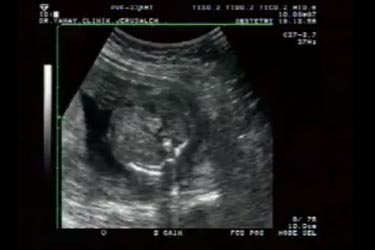After One Year of Forced Ultrasounds in Virginia, Report Examines Role of CPCs
A new report from the NARAL Pro-Choice Virginia Foundation shows that crisis pregnancy centers are misleading and in some cases obstructing patients from accessing abortion services, and they are doing so under the auspices of being sanctioned by the state.

It’s been just over a year since Virginia’s forced ultrasound law into effect, requiring individuals to undergo an ultrasound and then wait 24 hours, in most cases, before getting an abortion. Patients have seen an increase in expenses and a greater time commitment associated with the procedure, and abortion clinics are finding that they need more staff and other resources. Meanwhile, many crisis pregnancy centers (CPCs) are offering free ultrasounds under the new restrictions. But as a new report from the NARAL Pro-Choice Virginia Foundation (NPCVF) shows, CPCs are misleading and in some cases obstructing patients from accessing abortion services, and they are doing so under the auspices of being sanctioned by the state.
NPCVF has been conducting investigations into local crisis pregnancy centers since 2010, and has learned that the state’s CPCs, which are largely faith-based, are just as deceptive as ever. CPCs have long been known to provide inaccurate medical information about abortion types and complications, the effectiveness of contraception, and the treatment of sexually transmitted infections, but now they are being touted as a state-approved source for obtaining free ultrasounds that supposedly can be taken to abortion providers in lieu of being made to visit the provider twice.
Two CPCs investigated in the report refused to give patients a copy of their ultrasound when the patients stated they were going to have an abortion; a third said it could take “weeks” to get the documentation. One CPC directly denied a request to have an ultrasound faxed to an abortion provider, saying it doesn’t “support abortion clinics.”
The stakes here are significant. When a person visits a CPC hoping to get a free ultrasound but leaves empty-handed, she may no longer be able to undergo her preferred method of abortion, and may incur greater costs, because of legal gestational limits.
Tarina Keene, executive director of NARAL Pro-Choice Virginia, says that the 24-hour waiting period mandated by the law for residents who live less than 100 miles from an abortion clinic is particularly dangerous. Without that requirement, all people seeking abortions in the state could get an ultrasound directly before the procedure, rather than having to seek out ultrasounds from alternative sources, many of which are CPCs that patients go to out of financial desperation.
“It’s horrible for patients,” Keene told Rewire. “Patients have to come back two, sometimes three times now. In some cases they will come in to get their pregnancy tests, then schedule another day to do the ultrasound, then schedule another day to do the procedure. The only thing that the ultrasound law granted patients is that patients who live 100 miles from a clinic had to have the ultrasound two hours before the procedure.”
Keene’s group has also heard from providers who say they cannot trust the documents they receive from CPCs, and have to perform their own ultrasounds anyway to ensure the results are valid. When a patient brings in an ultrasound image from a CPC, an abortion provider will “have to be able to look at it and say, ‘OK, I am going to trust what this [CPC] says, that this image was actually taken when it says it was, and that the woman is in fact 12 weeks pregnant as the ultrasound says she is, or ten weeks pregnant, or eight weeks pregnant.’ Or it could say that she is 15 weeks pregnant and beyond the time when she is allowed to have an abortion, and they have to believe that” if they accept ultrasounds from outside clinics, explained Keene. As a result, she said, “no provider that I spoke to said that they would accept an image from outside their office.”
The NPCVF report describes how one client got a “virtually unusable” ultrasound picture from a CPC; it lacked any form of patient identification, pregnancy center identification, measurements, and an estimate of gestational age. The group argues that in instances like this, CPCs aren’t just acting on bad faith, but are violating state law as well, by acting as medical professionals but not adhering to standards of care.
At the same time, abortion clinics must now adhere to a set of rules overseeing every aspect of their operation, from hall width to medical tools and medications found in the office. Reproductive rights advocates argue this is a double standard. “The state is not justifying it, because unfortunately, they don’t have to,” said Keene. “They are in control and they can pass and sanction anything they want.”
She went on, “It is ironic that we are putting so much emphasis on our abortion providers, that they are allegedly putting women’s lives and health at risk, yet they are willing to send women to facilities that may not have any kind of medical oversight and also have an agenda. They could be giving out not only medical misinformation about birth control, which definitely hinders public health, but they are basically trying to deceive women into not having a legal, legitimate, safe procedure by misleading them on this ultrasound.”
“They are luring them into this facility for a free pregnancy test and a free ultrasound, and at the same time giving them misinformation about both,” said Keene. “You can’t even justify that.”
